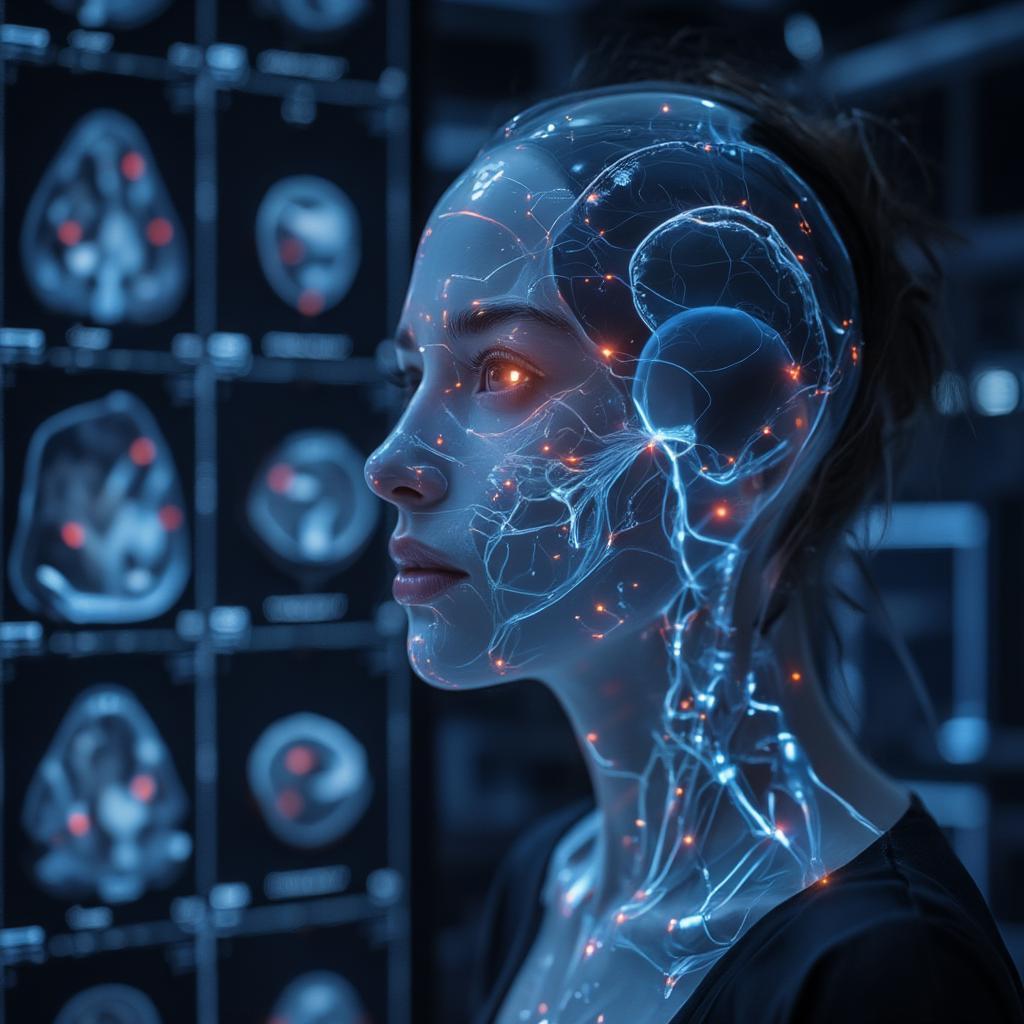Navigate Your Future: Best Certification Courses for Artificial Intelligence

Embarking on a journey into the realm of artificial intelligence (AI) can feel both exhilarating and daunting. With the field evolving at breakneck speed, staying relevant requires continuous learning and, crucially, demonstrable expertise. That’s where certification courses come in. But with a plethora of options available, how do you identify the best certification courses for artificial intelligence? This guide will illuminate your path.
Why Pursue AI Certification?
Before diving into specific courses, let’s explore why pursuing an AI certification is a smart career move. First and foremost, a certification validates your skills and knowledge. It’s tangible proof that you’ve mastered specific concepts and techniques in AI. In a competitive job market, certifications provide a distinct advantage, making you stand out from other candidates. Moreover, certifications often come with networking opportunities, connecting you with industry professionals and fellow learners. Lastly, earning a certificate often involves rigorous assessments, which means you not only learn but also reinforce your understanding through practical application.
Key Areas in AI Certification
The field of AI is vast and multifaceted. When looking at top artificial intelligence courses, consider the key areas that are most aligned with your interests and career goals. These include:
- Machine Learning (ML): Focuses on algorithms that allow computers to learn from data without explicit programming. This is a foundational area for many AI applications.
- Deep Learning (DL): A subset of ML using artificial neural networks with multiple layers, enabling complex pattern recognition. This field is instrumental in areas like image recognition and natural language processing.
- Natural Language Processing (NLP): The field dealing with the interaction between computers and human language, enabling machines to understand, interpret, and generate text.
- Computer Vision (CV): Enables computers to “see” and interpret images and videos, with applications spanning medical imaging to autonomous vehicles.
- Robotics: Focuses on the design, construction, operation, and application of robots, often involving the integration of AI for intelligent behavior.
- Ethical AI: An increasingly critical area addressing the societal impacts and ethical considerations of AI development and deployment. This will be important when we think about the future of AI.
The image depicts a collage of job titles related to artificial intelligence with lines connecting to an AI certification document, indicating the paths a certificate can open up.
What Makes a Good AI Certification Course?
Not all AI certification courses are created equal. Here’s what to look for in a high-quality program:
- Accreditation: Check if the course provider is reputable and the certification is recognized in the industry. Accreditation ensures the course meets certain standards.
- Course Curriculum: A strong curriculum should cover both theoretical concepts and practical applications, ensuring you gain a holistic understanding. Look for courses that have updated content reflecting the latest advancements in the field.
- Hands-on Projects: The best courses incorporate hands-on projects, allowing you to apply what you’ve learned in a real-world context. Practical projects not only reinforce knowledge but also provide tangible examples for your portfolio.
- Experienced Instructors: Learn from professionals who have real-world experience in AI, providing invaluable insights and practical knowledge.
- Community Support: Look for courses with active online forums or communities, where you can interact with instructors and fellow learners, fostering collaboration and problem-solving.
- Flexibility: Consider course formats (online, in-person, blended) and schedules that fit your lifestyle and availability.
“A strong AI certification isn’t just about accumulating knowledge; it’s about developing a practical skill set that can be immediately applied in real-world scenarios,” says Dr. Anya Sharma, a leading AI ethics researcher. “Look for courses that encourage problem-solving and critical thinking.”
Top Certification Courses You Should Consider
Now that you know what to look for, here are some of the Best Certification Courses For Artificial Intelligence, categorized for clarity:
University-Based Programs
Many prestigious universities offer excellent online and in-person AI certification programs. These programs often come with a stronger theoretical foundation and networking opportunities:
- Stanford University’s Artificial Intelligence Graduate Program: A comprehensive program offering advanced coursework in various areas of AI. These courses delve deep into theory and also give room to explore practical applications.
- Massachusetts Institute of Technology (MIT) Professional Education: Provides rigorous programs that are designed to impart cutting-edge AI knowledge. MIT is known for the rigor of its curriculum and its emphasis on innovation.
- Carnegie Mellon University’s Machine Learning Certification: A focused course that is known for the hands-on experience it provides, including an opportunity to work on complex projects.
- University of Oxford’s Artificial Intelligence Programme: A highly regarded course with emphasis on both practical and theoretical aspects of AI.
- California Institute of Technology (Caltech) AI Courses: These courses are ideal for those who seek both depth and theoretical rigour.
Online Learning Platforms
Online learning platforms provide a wide array of AI courses from institutions and industry experts:
- Coursera’s AI Specializations: Offers specializations from leading universities and institutions in different AI domains like Deep Learning, Machine Learning and NLP.
- edX’s MicroMasters Program in Artificial Intelligence: Provides in-depth coverage of machine learning, AI ethics, and other core concepts from renowned institutions.
- Udacity’s Nanodegree Programs: Offers career-focused programs with hands-on projects, mentorship, and career support, focusing heavily on real-world applications of AI and ML. For example, data science and artificial intelligence online courses on Udacity are very popular.
- DeepLearning.AI Specializations: Created by Andrew Ng, a leading figure in AI education, these specializations focus on deep learning and its various applications, like machine learning.
- Google AI Education: Provides various courses and resources for all levels of learning, including certifications for specific Google AI technologies. They also often give free artificial intelligence course online.
Industry-Specific Certifications
These certifications focus on specific technologies or platforms:
- TensorFlow Developer Certificate: Validates expertise in using TensorFlow, a popular open-source library for machine learning.
- Microsoft Certified: Azure AI Engineer Associate: Focuses on using Azure AI services to build intelligent applications.
- Intel AI Certification: intel ai certification from Intel AI academy offer AI certifications for specific technologies.
- AWS Certified Machine Learning – Specialty: Certifies your skills in building and implementing machine learning solutions on the Amazon Web Services (AWS) platform.
This image contains the logo of platforms such as Coursera, Udacity and edX to illustrate the various options available to learn AI online.
How to Choose the Right Course for You
Selecting the best certification courses for artificial intelligence involves a personalized approach. Begin by assessing your current knowledge and skills in AI and data science. What topics are you already familiar with? Where do your interests lie? Do you prefer a theoretical or practical approach to learning? Next, align these insights with your long-term career goals. Are you aiming to become a machine learning engineer, a data scientist, an AI ethicist, or something else?
Consider your budget and the time you can dedicate to learning. While some courses come with a higher price tag, they may offer more comprehensive support and instruction. Some platforms also offer artificial intelligence certification free for beginners, which is a good starting point for anyone. Finally, don’t be afraid to read reviews and talk to people who have taken the course before. Their feedback can be incredibly helpful in making an informed decision.
“The key to choosing the right AI certification course is to find a program that fits your learning style, goals, and budget,” explains Dr. Kenji Tanaka, a professor specializing in AI education. “Don’t rush the process; research and select thoughtfully.”
The Future of AI and Certification
The future of AI is bright, and certification will play an increasingly important role in professional development. As AI continues to evolve, we can expect new areas to emerge and more specialized certifications to become available. Additionally, the demand for professionals with strong ethical considerations of AI will also increase dramatically. This means that staying up-to-date with the latest certifications will be essential for career growth. There are several ways to continue learning about AI, some places even have a free artificial intelligence course online.
The Benefits of Continued AI Education
- Career Advancement: A solid AI certification will continue to open doors to higher positions and opportunities in the field.
- Salary Increase: Professionals with AI skills and certifications are expected to be paid higher, as their knowledge and skills become more in demand.
- Industry Expertise: AI certifications help to keep professionals abreast of developments in the field and the latest technologies.
- Personal Growth: Continuous learning helps you to personally grow in skill and as a professional in the field of AI and helps to improve your understanding of AI.
- Ethical Practices: AI certification can be very important to ensure professionals can make an informed decision when addressing ethical concerns in the field.

Conclusion
Choosing the best certification courses for artificial intelligence is a crucial step in your AI journey. By carefully assessing your goals, researching course options, and taking the time to understand the field, you can find the program that best sets you up for success. The AI landscape is dynamic and ever-evolving. By investing in your education and obtaining recognized certifications, you not only become a more competitive professional but also a part of shaping an ethical and innovative future in the field. Remember to make sure the content and the provider for any certification you are thinking about is high-quality. Look for reputable sources that can enhance and give you skills in your career.




